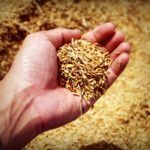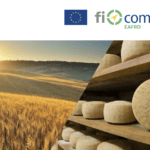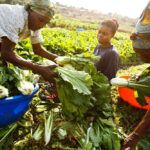The European Commission’s long-term vision for the future of rural areas is a promising start but making it a reality will require political will from every level of government, stakeholders and citizens alike, the European Committee of the Regions warned on Wednesday. Rural areas account for almost 30% of the EU population and 80% of its territory, making them a vital part of Europe’s recovery and development
Europe’s rural areas account for 80% of the territory and 30% of Europe’s population. They face a wide variety of challenges, from an ageing population and low income levels to an increasing digital divide and the impact of climate change, all of them further exacerbated by the pandemic and its broader impact on society and the economy. The European Commission’s strategy for supporting the development and recovery of these key regions is the Long-term vision for rural areas up to 2040 and the Rural Pact, an initiative that aims to engage citizens and political actors at EU, national, regional and local level to make rural areas and communities stronger, connected, resilient and prosperous.
As the institution that represents the million or more local and regional politicians across the EU, the European Committee of the Regions (CoR) is a key player in ensuring that the long-term vision becomes a reality, making rural territories stronger, better connected and more resilient for the benefit of the entire EU. But this will only be achieved by everyone working together – EU, national, regional and local authorities, stakeholders and citizens alike
“Local and regional actors are essential to implement the Rural Pact. Agriculture, mobility, digital connectivity and renewable energy are the strategic areas that must support rural development, given their potential to provide practical solutions and means of support to curb depopulation, facilitate generational renewal, and generate social and economic opportunities linked to the Green Deal. Women and young people must be at the centre of this process. We also believe that there is a need for a simplification of European funds, improvements in the way they are combined and a change towards a multiple-funds model that integrates rural areas in all policies,” stated the rapporteur Moreno Bonilla.
The opinion adopted by the plenary highlighted the urgency of putting in place concrete proposals for immediate action – accompanied by resources and quantitative targets – to support the long-term vision and ensure its effective implementation. Moreover, CoR members called on all levels of government to align all future policy and legislative initiatives with rural needs and realities – a process called “rural proofing”
Dubravka Šuica, the European Commission’s Vice-President for Democracy and Demography, joined the plenary debate on the future of rural areas in Europe together with Commissioner for Agriculture Janusz Wojciechowski. Vice-President Šuica underlined that the CoR is the first EU institution adopting a formal opinion on the long-term vision and pointed out that “it is only by acting together that we can create a new momentum for rural areas, as attractive, vibrant and dynamic places. The Long Term Vision for Rural Areas calls for solutions designed for their specific needs and assets, with the involvement of regional and local authorities and local communities. The Rural Pact that we’re building together will create the right framework for cooperation and contribute to achieving the shared goals of the long-term vision.”
Commissioner Wojciechowski highlighted that “the European Committee of the Regions is a key partner in delivering the long-term vision for rural areas. By coordinating regional voices from across Europe, the Committee will help to ensure that the complexity and variety of regional needs are addressed within the scope of the Vision. I look forward to working with the Committee over the coming years to develop the full potential of our rural areas.”
Background:
The European Commission adopted its long-term vision for rural areas on 30 June last year. The Communication outlines a strategy for making Europe’s rural areas stronger, connected, resilient and prosperous by 2040. Several actions are scheduled for 2021 and 2022. The long-term vision corresponds with major CoR’s demands, such as the call for a comprehensive rural agenda, an action plan, mainstreaming rural issues into all EU policies, introducing a rural proofing approach. Moreover, it is also meant to contribute to the Conference on the Future of Europe.
On 20 December the European Commission launched the Rural Pact, an initiative included in the long-term vision which aims to mobilise public authorities and stakeholders to act on the needs and aspirations of rural communities. It will provide a common framework to engage and cooperate between stakeholders at EU, national, regional and local level. The CoR will actively contribute to the Rural Pact and develop suggestions for the short-term and long-term implementation of the vision.
The letter on the launch of the Pact sent by the European Commission can be found here.
Since 2016, the European Committee of the Regions (CoR) has teamed up with the EP and stakeholders to raise awareness of the specific needs and potential of these areas. More information can be found on the Commission for Natural resources webpage and on the CoR webpage “Cohesion, our fundamental value”.
Source:European Committee of the Regions
More information:
Agriculture and Fisheries Council, 17th January
Infographic – The future of EU agricultural policy
Video: Press connference Agriculture and Fisheries Council17 January 2022
European Committee of the Regions and the European Commission
HORIZON EUROPE: Smart solutions for the use of digital technologies for farms







Leave a Reply